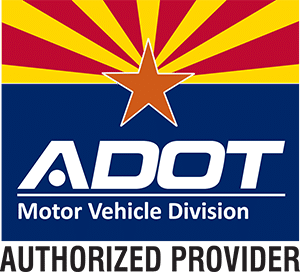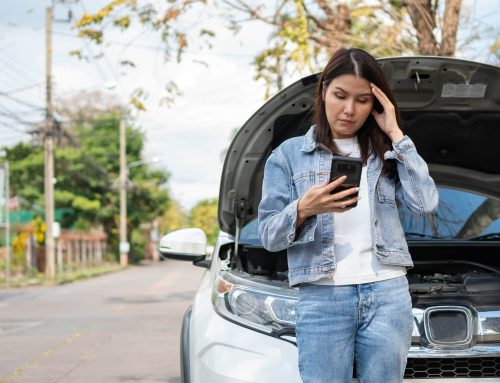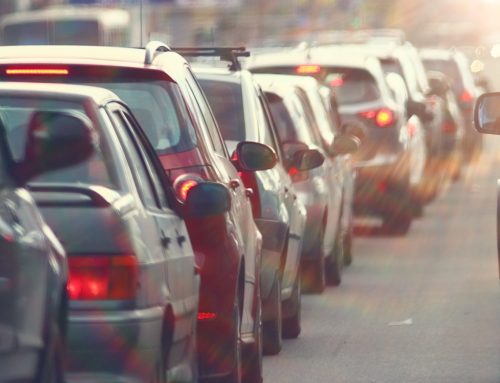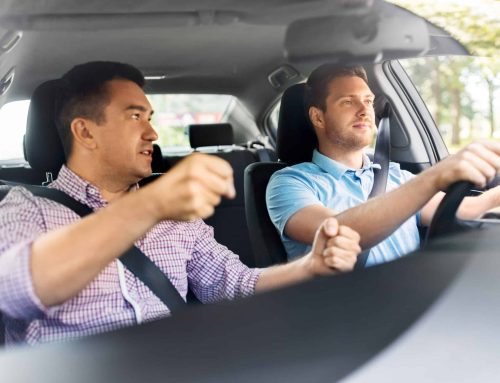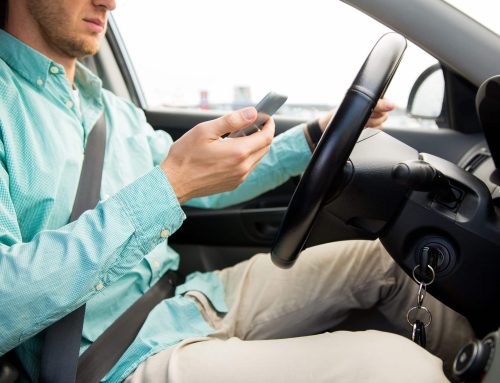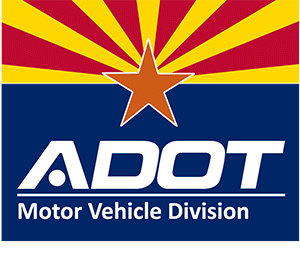Top Dangers of Driving at Night
The days may be getting longer, but it’s always a good idea to brush up on the facts about driving at night. No matter the time of year, driving after the sun goes down is more dangerous than people might think. According to the National Highway Traffic and Safety Administration (NHTSA), almost half (49%) of fatalities occur during nighttime hours—a pretty shocking statistic considering only 25% of travel happens at night.
Despite the risks, we often can’t avoid driving at night. Luckily, there are steps you can take to ensure you stay safe.
Be Aware of These Dangers
The first step to driving safely in the dark? Being aware of the different dangers you may encounter.
Low Visibility
It probably comes as no surprise that when the sun goes down, so does your ability to see clearly. The darkness naturally compromises your depth perception and peripheral vision, not to mention how easily it can conceal any objects or animals on the road.
If you have a dirty windshield or mirrors, you don’t just lower your own visibility. You can cause problems for other drivers, too. Cracks or smudges can actually cause a glare, making it harder for oncoming drivers to see their surroundings.
Vehicle Lighting
Ironically, lights can sometimes be your worst enemy while driving at night. When it’s pitch black, turning on your high beams can greatly increase your range of vision, but if you forget to turn them off when passing another driver, you risk temporarily blinding them and even causing a collision.
Bright lights inside your vehicle can also be a driving hazard. Whether it’s a bright cellphone in the passenger seat or your car’s interior lights, if the inside of your car is illuminated, everything outside will appear even darker.
Your exterior lights also need to be kept in tip-top shape as they’re the only way to signal to other drivers that you’re on the road.
Impaired Drivers
Fatal crashes involving alcohol impairment are four times more likely at night than during the day, so you’ll need to be extra cautious about drunk drivers if you’re driving when the sun goes down.
You won’t just need to look out for impaired drivers. If you’re driving through a busy town, there may be impaired pedestrians exiting bars or restaurants. No matter where you’re heading, make sure to implement your defensive driving skills.
Fatigue
Fatigue is its own form of impairment that be just as dangerous as driving under the influence. After dark, it becomes an even bigger risk as your body prepares itself for its regular sleep cycle, with most fatigue-related accidents occurring between 12 am and 6 am.
The Dos and Don’ts of Driving at Night
Sometimes, the best way to drive safely is to not drive at all, but if you must drive at night, make sure to follow these tips.
DON’T forget to turn off your high beams when necessary
High beams are a great way to increase visibility when driving in rural areas or on open roads—just don’t forget to turn them off when there are other cars nearby. In general, you should turn them off within 500 feet of an oncoming vehicle and within 300 feet of a vehicle that’s ahead of you.
DO keep your windshields, mirrors, and lights in good condition
Of course, lighting is necessary when driving on dark roads. To avoid casting a glare on other drivers or distorting the objects in your surroundings, always ensure your windows, mirrors, and exterior lights are clean and crack-free before you hit the road. You should also test all of your lights before you start driving to make sure they’re fully functional.
DON’T neglect your eyes
You don’t want to risk any eye troubles when you’re on a dark road. In addition to getting regular eye exams, follow these tips on keeping your eyes protected while driving:
Don’t stare directly at a car’s headlights. Use the edge of the road or lane markings to guide you until the car passes.
Blink regularly, and make sure your air conditioning isn’t directed at your eyes.
Take breaks to give your eyes a chance to rest after long periods of concentration.
DO take measures to combat fatigue
Even if you’re well-rested, you might experience some minor fatigue if you’re driving at night. To stay alert, consider drinking a caffeinated beverage, turning on the radio (but not too loudly), or safely pulling over to get some rest. If needed, don’t hesitate to call it a night and find somewhere to sleep until you’re ready to drive again.
Don’t take your chances with the dangers of driving in the dark. Contact us today and learn how you can get the knowledge and skills you need to stay safe on the roads at night, and all day long, during one of our defensive driving courses.

